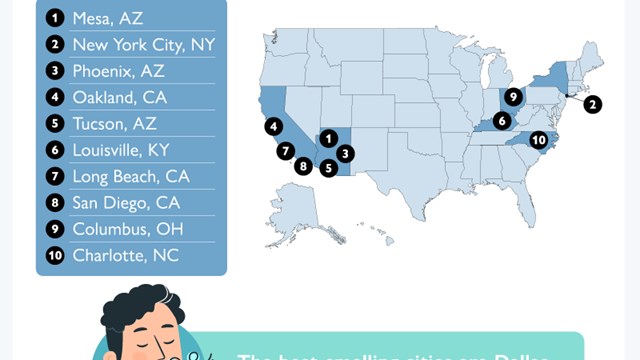Condominiums and cooperatives are first and foremost hubs for
communal living. Residents work together on or with the boards of
their associations to keep their properties functioning seamlessly
day-in and day-out.
So then why wouldn't this collaborative spirit extend outward to the surrounding neighborhood? Especially in New York City, there are local vendors that can cater to a denizen's every need within a few short blocks. It may behoove an association to patronize their neighbors for condominium business in a variety of ways—from encouraging valuable enterprises to stay put in an area where rents are trending ever higher, to forging invigorating personal relationships.
The Advantages
Burt Wallack, owner of the New York City-based Wallack Management Company, sees this type of quid pro quo alliance forged quite regularly. “We have one condo that serves breakfast in-house, and they purposefully and exclusively buy from a vendor that's located nearby,” he says. “We have numerous buildings that buy flowers from local florists, or get staff uniforms tailored from local tailors. Supers purchase supplies—specialty items—from local hardware stores. This is an everyday occurrence in our condos and co-ops.”
“Many residents in our portfolio of properties support their local businesses, if only because it's easier to walk and shop within the neighborhood than take the train or cab elsewhere,” acknowledges Alex Kuffel, president of Pride Property Management Corp., which has offices in Manhattan and Englewood Cliffs, New Jersey. “But the board of a 50-unit co-op at East 50th Street and Third Avenue is extremely enthusiastic and encouraging when it comes to supporting local merchants. Flowers, food deliveries, grocers, restaurants, beauty salons, plumbers, locksmiths, even a pet-grooming service, all within three or four blocks from the vicinity, are highly promoted by the association.”
“Additionally, their annual meetings are held in the private back room of a local restaurant, which is economically-catered with food and beverage for all attendees,” Kuffel continues. “Over the last few decades, many longtime residents have continued to patronize the same doctor or dentist in the neighborhood, as have their children and even their children's children. A few years ago a local interior designer with a solo practice was retained to redo the lobby and hallways with new wallpaper, paint and carpeting. And, as the final piece of this community spirit mosaic, the board writes and circulates a newsletter that better informs residents about what's going on in the building, including tips for popular local shops and merchants to patronize, including cafes, bars and eateries.”
Hannah McAllister, a managing agent with the Bronx real estate firm Robert E. Hill, Inc., recalls a recent event that she attended at the 260-home Fieldston Property Owners Association in Riverdale: “Last Sunday we had our third annual Pond Party; a barbecue for all residents and their guests. The food was catered by Riverdale Kosher Market on Riverdale Avenue, and we had bounce houses and games provided by Frankie's Carnival on Tremont Avenue. Two hundred guests came through during the three-hour bash. It was a great success enjoyed by all.”
The Disadvantages
Of course, as with anything, there is a certain downside that can come with favoring local vendors. Frank Socci, Jr., principal and director of property management with brokerage company NAI Long Island in Melville, points out that if should something go wrong with a business or enough residents have a negative experience, it can reflect poorly on the board and its associations. And Paul Gottsegen, president of the Manhattan-based Halstead Management Co., LLC warns that by patronizing local vendors, a board may unwittingly find itself dealing with someone who has a “dual relationship” with another tenant or board member in the building—a person who has a vested interest in promoting that vendor, regardless as to whether or not that particular vendor is offering the best value of service or product.
But, at least in Wallack's experience, it's the mom-and-pop establishments that often do provide the best value for an association's dollar.
“There's goodwill in purchasing from your neighborhood,” he says.
“And they do a pretty good job. They're not a large conglomerate;
they're likely to take care of you. And by keeping them busy, we
encourage them to stay.”
Mike Odenthal is a staff writer for The Cooperator and other publications.







Leave a Comment